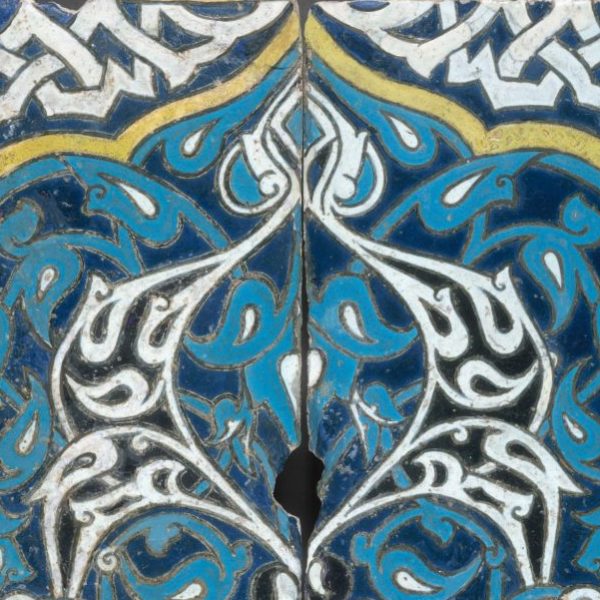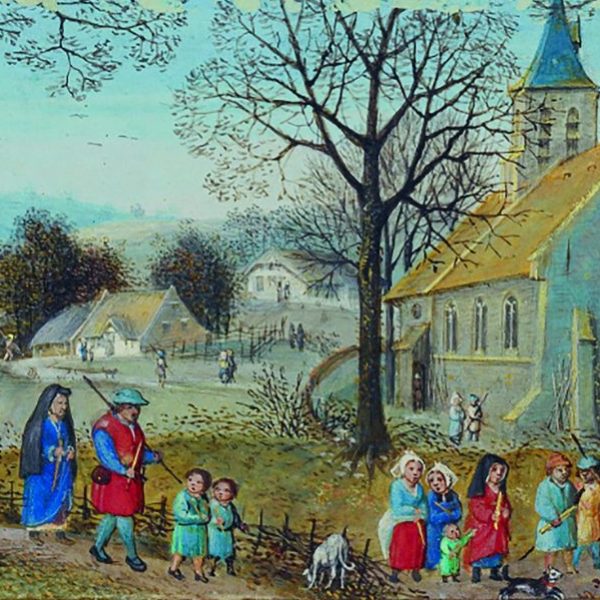Voices for Tolerance Raised Above Religious Conflict
Richard Dawkins famously argues that religion is “the root of all evil,” leading inevitably to intolerance, violence, and worse. Yet in Abraham’s Children: Liberty and Tolerance in an Age of Religious Conflict, the collection’s editor Kelly James Clark sets himself firmly against such arguments. “How does one determine,” Clark asks, “if it was religion, after all, that motivated, say, the Crusades or the Inquisition or 9/11 and not the nonreligious desire for earthly power, prestige, or wealth?” Unlike Dawkins and others who point to religion as the fundamental source of such conflicts, Clark does not call for the dissolution of religion, but rather, a revelation of the impetus towards tolerance to be found in the Abrahamic faiths.
 Clark acknowledges that this is no easy task for a species inclined to separate ourselves from those we perceive as other. “Tolerance,” he writes, “is the disposition to subdue our natural inclination to distance, reject, or persecute others whose beliefs and practices differ from our own,” so it does not come without effort. However Clark, who is the former Executive Director of the Society of Christian Philosophers and has written extensively on ethics and religion, argues that this effort should not require us to reject our religious faith—and in order to illustrate this point, Clark asked prominent Jews, Christians, and Muslims to come together and share their perspectives, using their religious backgrounds to illuminate the possibility for peaceful coexistence. “Instead of denigrating tradition in deference to “pure reason,”” the essays by the thinkers of Abraham’s Children “celebrate tradition and seek defenses of tolerance from within these Abrahamic theological traditions.”
Clark acknowledges that this is no easy task for a species inclined to separate ourselves from those we perceive as other. “Tolerance,” he writes, “is the disposition to subdue our natural inclination to distance, reject, or persecute others whose beliefs and practices differ from our own,” so it does not come without effort. However Clark, who is the former Executive Director of the Society of Christian Philosophers and has written extensively on ethics and religion, argues that this effort should not require us to reject our religious faith—and in order to illustrate this point, Clark asked prominent Jews, Christians, and Muslims to come together and share their perspectives, using their religious backgrounds to illuminate the possibility for peaceful coexistence. “Instead of denigrating tradition in deference to “pure reason,”” the essays by the thinkers of Abraham’s Children “celebrate tradition and seek defenses of tolerance from within these Abrahamic theological traditions.”
Former President Jimmy Carter, the first in the section devoted to “Abraham’s Christian Children” opens his essay with a reflection on the Bible selection he chose for his 1977 inaugural address, a verse which commands the Christian “to do justly, and to love mercy and to walk humbly with thy God.” Like Clark, Carter acknowledges our natural inclination towards intolerance, writing of the “barriers” we are apt to construct along religious lines. Yet, he adds, “breaking through this barrier and reaching out to others is what personifies a Christian and what emulates the perfect example that Christ set for us.”
Among the Muslim contributors, Abdurrahman Wahid, the first democratically elected president of Indonesia, asserts that, as in Carter’s understanding of Christianity, the true Islam is an essentially tolerant faith. Wahid writes of how the humble believer does not claim perfect understanding of God, and so “when the ignorant address them, they say ‘Peace.’” “Beyond the daily headlines of chaos and violence,” Wahid argues, “the vast majority of the world’s Muslims continue to express their admiration of Muhammad by seeking to emulate the peaceful and tolerant example of his life,” his sentiments echoing Carter’s words about the attempts of the Christian to follow the example set by Christ.
Many of the Jewish voices, from Rabbi Dov Berkovits to Israeli peace activist Nurit Peled-Elhanan, express the need for self-critical attitudes as all religious groups work towards tolerance. Berkovits states this need in the form of an axiom that extends to Jews, Muslims, and Christians: “The leaders of each society must be self-critical and assume responsibility for acts of violence stemming from its society.” Peled-Elhanan’s essay on “The Intolerance of Israeli Education” embodies this attitude, directing a questioning eye towards the way Israeli schools seem to teach intolerance along with reading and math.
All in all, these thinkers come together to paint a hopeful picture for peace among Abraham’s Children, one truly captures the potential for liberty and tolerance among religious groups in a time when conflict may seem to overshadow the possibility of coexistence.
Learn more on Kelly James Clark‘s website.



